The streets have been fairly empty, traffic has been quieter, and most parks have been closed up until very recently. It’s safe to say our bustling human lives have gotten a lot quieter since COVID-19, which for our dogs, is pretty different. This is even more true for puppies and dogs who are new to this human world or just new to your environment.
They are about to go from a fairly isolated life, with just their family, to a big world filled with dog parks, more people out and about, hiking trails and traffic. Where do you even begin socializing your dog after COVID-19?
We’ve created a list of handy socializing tips to get your dog back into their social swing. These simple tips can help ease your dog back into the world and also help them cope with new changes to their environment.
5 tips to socializing your dog after COVID-19
1. Skip the dog park
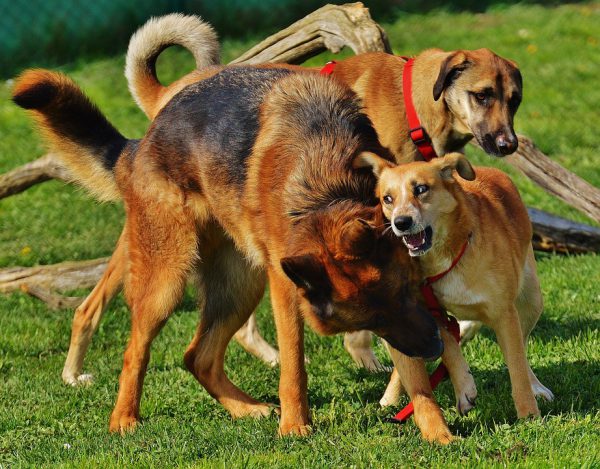
Having your dog jump into a dog park with a bunch of dogs after 2-3 months of isolation will be overwhelming to say the least. They may feel stressed, fearful or over aroused. Over excited dogs can tend to irritate other dogs who might be a little shaky getting back into the groove of playing in a large group. If your dog has never socialized with other dogs, they could also pick up bad social habits. These then become a part of their normal social behavior.
2. Have one-on-one social playdates
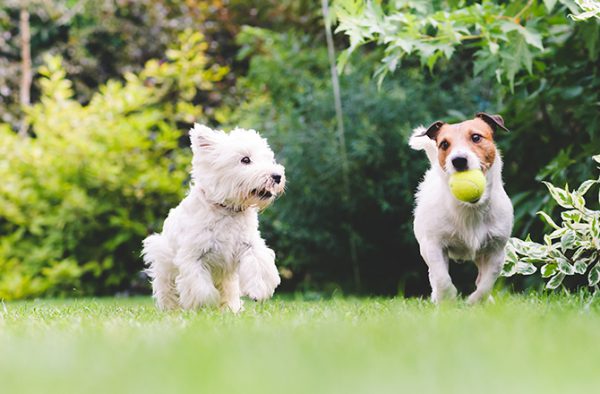
Have a friend or family member with a dog? Invite them and their dog (or just their dog) over for a playdate. These smaller one-on-one interactions can help your dog ease back into the swing of appropriate social behavior. Sign up for small group socialization
3. Avoid on-leash greetings
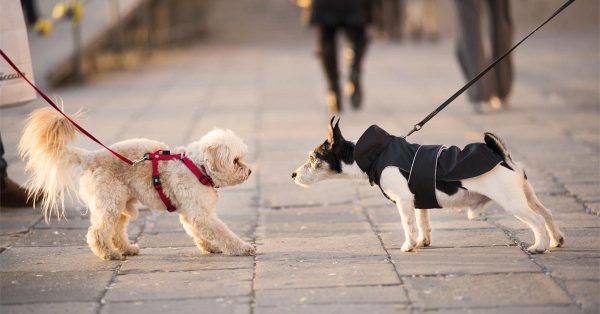
Dogs on leash tend behave very differently than they would off leash. The leash by nature inhibits a dogs natural ability to communicate with one another physically. The leash also adds another level of excitement. While socializing your dog after COVID-19 keep practicing your social distancing on-leash. If you just got a dog, allowing your dog to have mini parties on the end of their leash will encourage naughty leash behavior and inadvertently reward behaviors such as: jumping up, pulling, barking at other dogs, etc.
4. Desensitize your dog to humans wearing masks
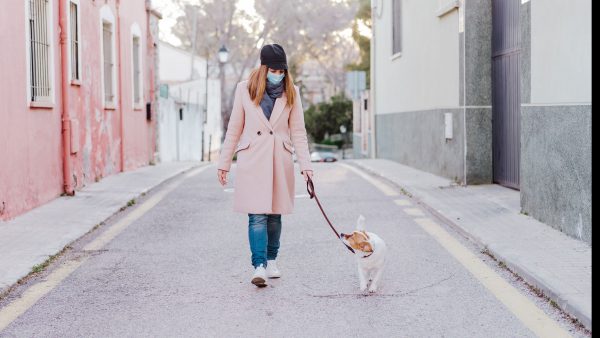
For our dogs who have been with us for a couple of years the people of our world look pretty different now. Keeping in mind that dogs are visual communicators, they read our faces to understand our body language. Now that everyone’s face is covered up, this can be terrifying to a dog who can no longer get a read on any of these creatures now inhabiting their world.
QUICK TRAINING EXERCISE
Try this training exercise at least once a day to help them adjust.
- Take your dog out in front of your home or building, get them into a sit.
- As people in masks pass by, softly praise your dog and offer them a high value reward.
- As your dog’s handler, it’s YOUR responsibility to teach what is good or bad in our world.
- Do not reward if your dog barks or lunges, only if they can remain calmly seated
5. Enroll your dog in group activities
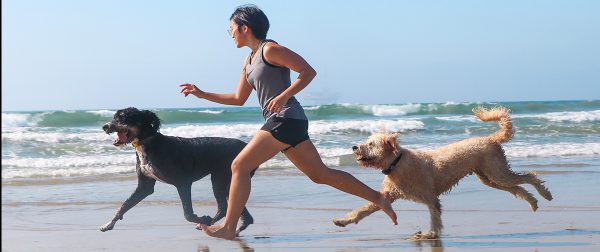
When your dog gets an opportunity to be around other dogs while completing tasks, they get to have a positive experience being around other dogs without necessarily having to interact with them. This gives them a chance to practice effective behaviors like ignoring dogs in their surroundings versus constantly needing to interact, move towards or meet passing dogs.
Unsure how your dog is going to react with other dogs again? Fitdog can help! Our daycare is unlike any in Los Angeles. We enforce naps and offer enrichment activities everyday. This way, your dog gets he mental stimulation and socialization stimulated without being over aroused.
We do an assessment before they can stay and our trained staff of handlers keep yards peaceful by giving timeouts, rotating dogs to create healthy playgroups and providing attentive care to each dog to help them feel safe.
We also have pack hikes, beach excursions, swimming lessons and more. Let us help your dog be around other dogs while having fun completing an activity that stimulates their mind.
Did you get a new puppy during quarantine? Puppy Preschool is just what your new baby needs. Designed for young puppies 8 weeks to 5 months of age, preschool offers early start healthy socialization. Our trainers work with young puppies on developing appropriate play skills, sound desensitization plus socialization to different types of people and experiences. Related Article: Importance of Puppy Socialization
Even though you might feel ready and think your dog should be ready, doesn’t mean they are. Move at your dog’s pace and keep it pawsitive. Let us help you build a healthy, happy social life for your dog, post COVID-19.
